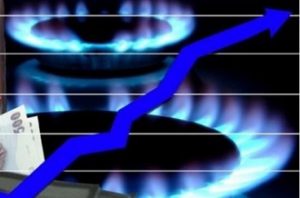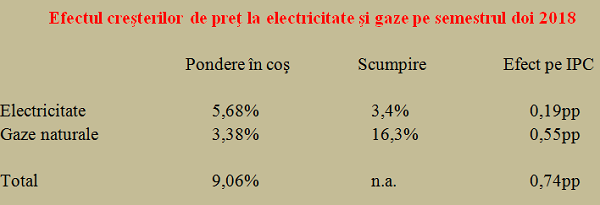 Romania ranked fourth in the second half of last year in the EU in terms of price increase in natural gas provided to the population, according to data released by Eurostat.
Romania ranked fourth in the second half of last year in the EU in terms of price increase in natural gas provided to the population, according to data released by Eurostat.
With an increase of 16.3%, we ranked on top of price increases right after Ireland (+ 17.3%), Bulgaria (+ 16.5%) and Sweden (+ 16.4%).
Noteworthy, the three states mentioned do not have their own natural gas resources, while four other states have found it appropriate to reduce prices of this energy resource. They are Croatia (-2.5%), Portugal (-1.9%), Hungary (-0.4%) and Germany (-0.2%).
The average of the price evolution recorded at the EU level was + 5.7%.
Despite the natural gas price increase, our country is positioned, along with Hungary, as the EU member country with the lowest gas prices for the population, with 3.5 euro/100kWh. However, after adjusting with the price level in each country and switching to the standard purchasing power parity (PPP), we become the tenth most expensive country in the EU.
*
- Prices of natural gas for households in some EU member countries in the second semester of 2018
- Country average price (100 kWh) price change tax share
- Romania
- Bulgaria
- Hungary
- Poland
- The Czech Republic
- France
- Germany
- Italy
- EU average
*
It is also noteworthy that the share of taxes in the final price is the lowest within the region and well below the level in Western countries.
Therefore, the increased price has not really come to the benefit of the public budget and new price increases could be expected in the future as taxation gets closer to the practice in more developed countries.
Electricity, fifth most expensive in EU
Unlike gas, the 3.4% increase in electricity price placed us at the middle of the EU platoon (14th out of 28), but the price reached in the second half of 2018 left four other EU countries behind (Malta, Hungary, Lithuania and Bulgaria). The adjustment to PPP standard sends us in this category to EU top 5 highest prices if we take into account the purchasing power of the population.
*
- Electricity prices for households in some EU member states in second semester of 2018
- Country average price (100 kWh) price change tax share
- Euro PPP
- Romania
- Bulgaria
- Hungary
- Poland
- The Czech Republic
- France
- Germany
- Italy
- EU average
*
If the nominal price in euro is about 30% higher than in Bulgaria and 18% higher compared to Hungary, as an impact on the population after the adjustment with the price level, we reach at 60% above France and 20% over Italy and very close (at 94% of the level applied there) to Germany.
This time, taxes applied by the state are the highest within the region except for Poland but remain below the EU average (27% of our local price compared to 37% at the EU level). It should also be noted that the price increases in the neighbouring EU countries with which we were interconnected were somehow smaller, although they already had lower prices.
What price increases in electricity and gas meant in S2 2018
Data provided by Eurostat show that more than one-sixth of the general price increase in the second half of 2018 came directly from the increase in electricity and gas bills. It is about 0.74 percentage points at average annual inflation in the second half of 2018 of 4.27%.
*
- Impact of increases in prices of electricity and gas in second semester of 2018
- Share of basket price increase impact on consumer price index
- Electricity
- Natural gas
- Total
*
Basically, given the relatively high shares that the two positions from the energy field have in the consumer basket (together they even rank first, over meat and meat products or fuels), increases of 3.4% in electricity price and 16.3% in gas price are those that pushed the inflation out of the 2.5% corridor plus/minus 1%.
Without the direct effect, we would have had an average price increase of 3.53% in the second half of 2018 and if we also consider the effect of the propagation in the price of all products and services that depend on the cost of utilities, CPI would certainly have been below 3.5%.
However, while in terms of electricity we were within the general EU note (+3.4% compared to the EU average of 3.5%), the increase for the natural gas was well above the average increase in Europe (+ 16.3% compared to +5.7%).












